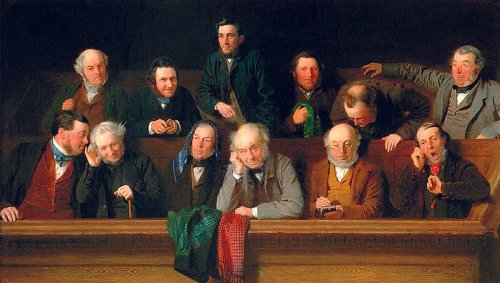
From Gábor J. Székely’s Paradoxes in Probability Theory and Mathematical Statistics, via Mark Chang’s Paradoxology of Scientific Inference:
A, B, C, D, and E make up a five-member jury. They’ll decide the guilt of a prisoner by a simple majority vote. The probability that A gives the wrong verdict is 5%; for B, C, and D it’s 10%; for E it’s 20%. When the five jurors vote independently, the probability that they’ll bring in the wrong verdict is about 1%. But if E (whose judgment is poorest) abandons his autonomy and echoes the vote of A (whose judgment is best), the chance of an error rises to 1.5%.
Even more surprisingly, if B, C, D, and E all follow A, then the chance of a bad verdict rises to 5%, five times worse than if they vote independently, even though A is nominally the best leader. Chang writes, “This paradox implies it is better to have your own opinion even if it is not as good as the leader’s opinion, in general.”
